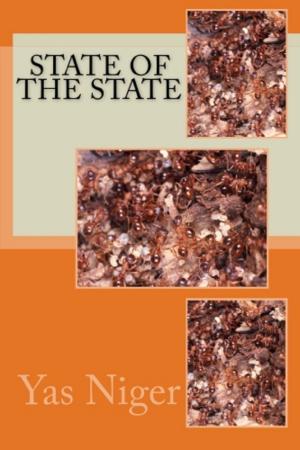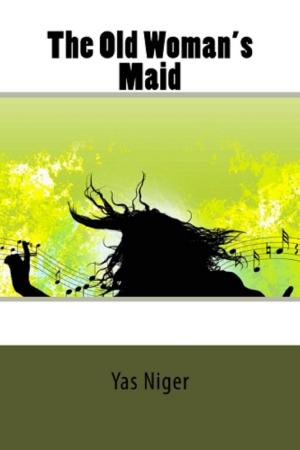Fever: The Appetite of Fever (Book III)
Nonfiction, History, Africa, Fiction & Literature, Cultural Heritage| Author: | Yas Niger | ISBN: | 9781310911583 |
| Publisher: | Yas Niger | Publication: | April 2, 2014 |
| Imprint: | Smashwords Edition | Language: | English |
| Author: | Yas Niger |
| ISBN: | 9781310911583 |
| Publisher: | Yas Niger |
| Publication: | April 2, 2014 |
| Imprint: | Smashwords Edition |
| Language: | English |
In this tale everything is like everything, just as everybody likens everyone else, in a mythical sense. Everything makes up everyone and everyone is made of everything, in one blur oddity of an ironic distinctively same clarity of nature. It tells of the huge promise a blessed land points to, it tells of the many bodies buried and alive, that had and are, waited and waiting, for the satisfaction they ever sought, but never got and most likely will never get, as one entity.
The story is about a family that expressively made up a nation that approved and doled out its version of justice to all its number, but appeases none of them really. It fostered its own colossal failure in combined efforts. It made that of its constituent membership insignificant and trivial in an unimportant way. This is the historical tale of the Nigerian nationhood.
There is the honest triumph of labour, the hugely varied effect of wit against diverse hardship, and the seeming effectiveness of corruption and varied segregation where all other approaches have failed. But the lingering damage these leaves in their wake is too tasteless to be edible and yet must be wholly eaten. There is the highly proclaimed effect of diverse personalities on their orientations, and these aren’t disguised in the blatant tribalism, regionalism and ethnicity that surround it all. Everything merges into vastly imitated robustly parochial ways, too alike to be sincerely different, revealing a rich nation with a fever it resembles.
The appetite of Fever is the hard filled period in the turbulent life of the west African nation of the larger Niger river area, as its people waited without the appetite for the nationhood the British had bequeath for them. The story veers from one long deception that made a whole generation of the people tasteless of the promise that wasn’t forthcoming, like they had been gullible to believe it would. It tells of their loss of faith in the dream, as they set a course for their descendants to do the same. They go about living their lives as they see fit, mindless of the collection of hurried up, un-enforced laws their actions had agreed to adhere to. As they prepared their children to take over the long wait, they prepare them for.
In this tale everything is like everything, just as everybody likens everyone else, in a mythical sense. Everything makes up everyone and everyone is made of everything, in one blur oddity of an ironic distinctively same clarity of nature. It tells of the huge promise a blessed land points to, it tells of the many bodies buried and alive, that had and are, waited and waiting, for the satisfaction they ever sought, but never got and most likely will never get, as one entity.
The story is about a family that expressively made up a nation that approved and doled out its version of justice to all its number, but appeases none of them really. It fostered its own colossal failure in combined efforts. It made that of its constituent membership insignificant and trivial in an unimportant way. This is the historical tale of the Nigerian nationhood.
There is the honest triumph of labour, the hugely varied effect of wit against diverse hardship, and the seeming effectiveness of corruption and varied segregation where all other approaches have failed. But the lingering damage these leaves in their wake is too tasteless to be edible and yet must be wholly eaten. There is the highly proclaimed effect of diverse personalities on their orientations, and these aren’t disguised in the blatant tribalism, regionalism and ethnicity that surround it all. Everything merges into vastly imitated robustly parochial ways, too alike to be sincerely different, revealing a rich nation with a fever it resembles.
The appetite of Fever is the hard filled period in the turbulent life of the west African nation of the larger Niger river area, as its people waited without the appetite for the nationhood the British had bequeath for them. The story veers from one long deception that made a whole generation of the people tasteless of the promise that wasn’t forthcoming, like they had been gullible to believe it would. It tells of their loss of faith in the dream, as they set a course for their descendants to do the same. They go about living their lives as they see fit, mindless of the collection of hurried up, un-enforced laws their actions had agreed to adhere to. As they prepared their children to take over the long wait, they prepare them for.















